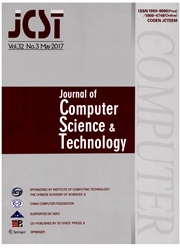

 中文摘要:
中文摘要:
安全总是是一个流行、批评的话题。与信息技术的快速的发展,它总是正在吸引民族注意。然而,自从安全有长历史,它论及改变很多的大量话题,从经典密码学到最近流行活动安全。有需要调查安全相关的话题和趋势,它能是为安全研究人员,安全教育者和安全专业人员的一个指南。到地址上述在这篇论文,我们需要在栈溢出上在安全相关的问题上进行大规模研究。栈溢出是一个流行联机问题和答案地点让软件开发者传达,协作,并且分享与对方一起的信息。在在栈溢出上张贴的众多的问题之中有许多不同话题,安全相关的问题占据一个大比例并且有一个重要、重要的位置。我们首先使用二条启发规则从数据集提取基于帖子的标签与安全有关的问题。然后我们使用一个先进话题模型,潜伏的 Dirichlet 分配(LDA ) 调节了使用基因算法(GA ) ,基于他们的文章聚类不同安全相关的问题。在获得安全相关的问题的不同话题以后,我们使用他们的元数据做各种各样的分析。我们总结所有话题进五个主要范畴,并且也调查不同话题的流行和困难。基于我们的学习的结果,我们为研究人员,教育者和专业人员结束几个含意。
 英文摘要:
英文摘要:
Security has always been a popular and critical topic. With the rapid development of information technology, it is always attracting people's attention. However, since security has a long history, it covers a wide range of topics which change a lot, from classic cryptography to recently popular mobile security. There is a need to investigate security-related topics and trends, which can be a guide for security researchers, security educators and security practitioners. To address the above-mentioned need, in this paper, we conduct a large-scale study on security-related questions on Stack Overflow. Stack Overflow is a popular on-line question and answer site for software developers to communicate, collaborate, and share information with one another. There are many different topics among the numerous questions posted on Stack Overflow and security-related questions occupy a large proportion and have an important and significant position. We first use two heuristics to extract from the dataset the questions that are related to security based on the tags of the posts. And then we use an advanced topic model, Latent Diriehlet Allocation (LDA) tuned using Genetic Algorithm (GA), to cluster different security-related questions based on their texts. After obtaining the different topics of security-related questions, we use their metadata to make various analyses. We summarize all the topics into five main categories, and investigate the popularity and difficulty of different topics as well. Based on the results of our study, we conclude several implications for researchers, educators and practitioners.
 同期刊论文项目
同期刊论文项目
 同项目期刊论文
同项目期刊论文
 期刊信息
期刊信息
